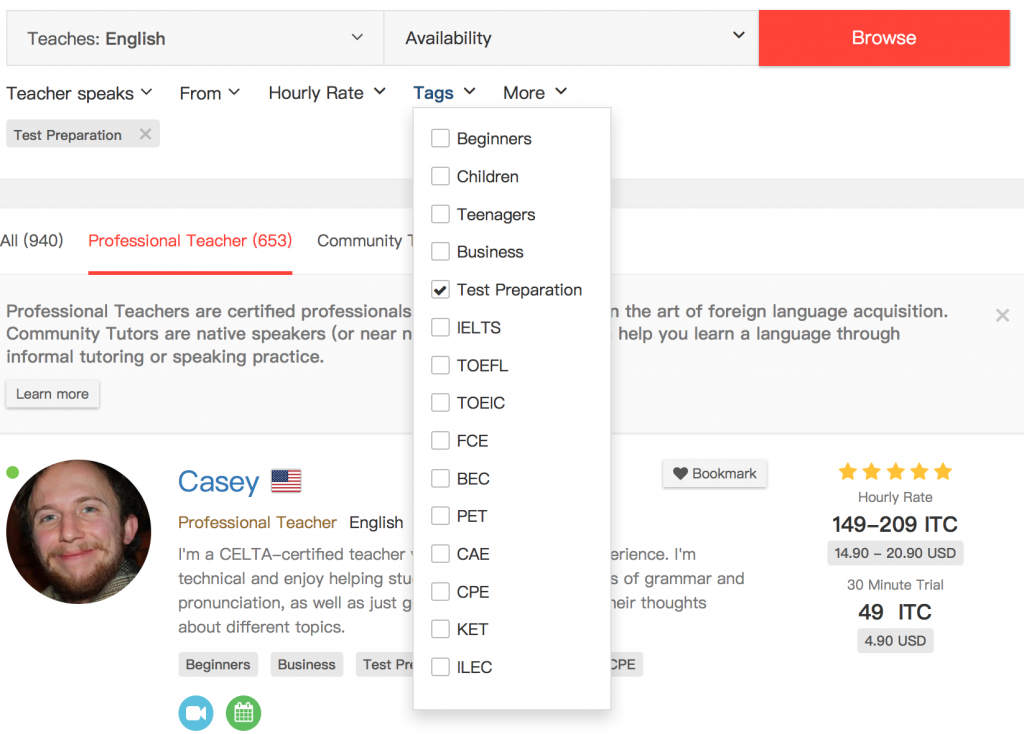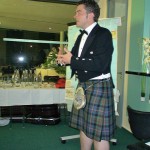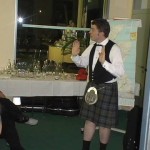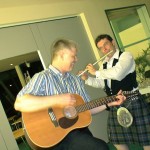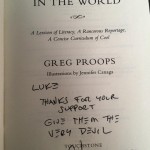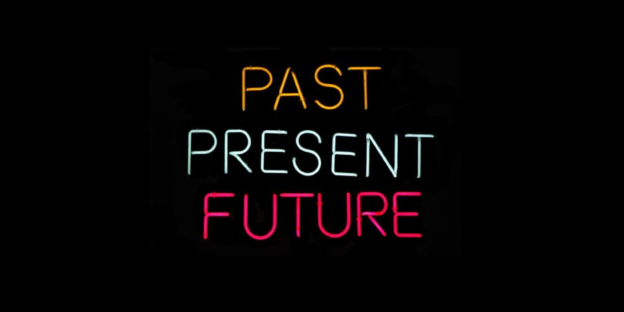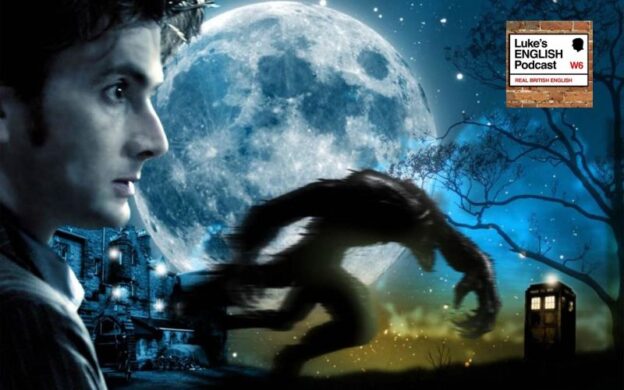Answering grammar questions from listeners, with details about verb tenses (including present continuous vs present perfect continuous & future continuous vs going to) and the language of newspaper headlines. Includes references to The Queen, The Legend of Zelda and a lot of pizza. Transcriptions & grammar notes available below.
 [DOWNLOAD]
[DOWNLOAD]
Transcript & Grammar Notes
This episode is all about grammar and I’m going to respond to questions and comments that I’ve received mainly in the comment section on my website.
I don’t often teach grammar on the podcast directly but I still think studying grammar is worthwhile.
I do grammar all the time in my language classes and it is often very interesting. My students get into it even though they’re sometimes quite confused by it, and generally I find that learners do see the value of studying grammar sometimes because ultimately it is the foundation of the language.
I think that a certain amount of grammar work is really useful and important, depending on your situation of course. It shouldn’t all be grammar – you’ve also got to focus on general communication skills, building and remembering vocabulary and so on, but it does pay to take a proper look at the way the language works on a structural level. There may be certain big differences in the way English works and your language works, and you might need a helping hand in understanding those differences and it can help you to correct certain common errors that you might be making in English.
So, let’s “take a deep dive” into some grammar here on the podcast today.
Overview of the Episode
There is information in this episode about:
- Verb tenses
- future continuous vs going to (what’s the difference?)
- present perfect continuous vs present continuous (what’s the difference?)
- The Grammar of Newspaper Headlines
- Why is it “STEPHEN HAWKING DIES” and not “STEPHEN HAWKING DIED”?
- Relative clauses (or WTF is up with relative clauses?) – Will be in part 2 in the App
- A question about prepositions – Will be in part 2 in the App
- Have got vs have vs get – Will be in part 2 in the App
Also a couple of other selected comments from the website recently.
Some of these questions were sent to me bloody ages ago, and who knows, the people who originally sent them might not even be listening to this podcast any more – they might have given up on English (since their questions were left unanswered for so long), or maybe they’ve given up on life in general and perhaps they’ve just moved to Florida or something, where they run a modestly priced leather goods store… Or maybe they just died. I don’t know! I don’t know what you’re all doing with your lives! Anyway, grammar questions from listeners who may or may not still be alive, or running a small business somewhere in Florida.
Let’s get straight into it.
VERB TENSES
Present Continuous vs Present Perfect Continuous
Alessandro (via Facebook)
Hi Luke. I don’t know if this is the right way to interact with you.
[Luke: Generally, the right way to interact with me is to give me tea and cake]
I just need an info some info. Could you please tell me in which of your podcast episodes you explained the difference between the present continuous and the present perfect continuous? [I can’t remember for the life of me!]
If you didn’t yet, please consider this message as an idea for a new episode. I think that we learners usually use these two forms in the incorrect way.
Present continuous – e.g. “I am eating a cake”
Present perfect continuous – e.g. “I have been eating a cake”
Typical wrong sentence – can you correct it?
“I am learning English since 10 years ago”
A few issues:
Present continuous
Present perfect continuous (and simple)
Time expressions with present perfect for saying how long you have been doing something.
Present continuous (be + -ing)
- Things happening right now
I am sitting on a chair. We are learning English. What are you doing? I’m just watching Neflix, what about you? Nothing. I am literally doing nothing. How is that possible? I don’t know, I’m just bored. No, I mean how is it physically possible for you to be doing nothing? I don’t know, there’s nothing going on. No you don’t understand, I’m asking a metaphysical question, like you have to be doing something – you’re breathing, you’re staring into space, you’re just lying there. Never mind, I shouldn’t have called you… CLICK
- Temporary situations at the moment
I’m reading a really interesting book at the moment. I’m working on a new project at the moment. I’m not sleeping very well these days.
- Fixed future plans (like going to)
What are you doing tomorrow? I don’t know. Nothing. Well, I’m going to the cinema to see Avengers: Infinity War. Do you want to come? Yeah!! Wait, is your girlfriend going? Yes, she is. Well, in that case – ahhh, ooooh, I’ve just realised – something’s come up, I’m not going to be able to make it. I’ve just realised I’m looking after my neighbour’s pet fish, cat, catfish, tomorrow. Can’t come.
Weird situation in which someone doesn’t like someone’s girlfriend. No funny ending to that story, just a bit of intriguing drama…
Anyway… That’s present continuous.
Things happening now, temporary situations happening now, future plans.
We don’t use present continuous to talk about how long a present action has been happening.
In some languages you do. You just use a present tense and add a time expression.
E.g. “I am waiting here since 3 hours!”
In English it should be:
I’ve been waiting here for 3 hours.
That’s present perfect continuous.
It’s used for a few things – a few different functions, but a big one is to describe how long a present action or situation has been happening.
I’ve been recording this podcast episode for xxx minutes.
You can do a simple kind of dialogue.
Hey, what are you doing?
I’m just -ing.
How long have you been doing it?
About xxx time.
Sorry?
I said I’ve been doing it for about xxx time. Why do you ask?
No reason.
OK.
Good conversation.
Imagine the village idiot going around town asking people what they’re doing and how long they’ve been doing it. The town is a very sleepy village where nothing happens and everyone is unemployed. ( A bit like side missions in The Legend of Zelda?)
Hey what are you doing?
I’m just throwing stones into a lake.
How long have you been doing it?
About 4 hours.
What?
I said I’ve been throwing stones into this lake for about 4 hours. What’s it to you?
Nothing.
Present perfect continuous is like what happens when present perfect simple and present continuous have sex. The result is present perfect continuous. (Not what you learn in the grammar books)
Have (from p.p.s.) been (the past participle of “be” from present continuous) and then –ing (from present continuous)
Present perfect is all about actions in the past that are connected to now in some way
- They happened in an unfinished time period (So, how are you getting on? What have you done so far in this episode? How many grammar questions have you answered?)
- They have an effect on the present (I’ve just dropped my iPhone into the toilet, what am I going to do? Just flush it away maaan)
- They’re not finished (You’ve been talking for XXX minutes and you haven’t even answered one question yet?)
- They’re very recent (I’ve literally just started this question, give me a break man)
There are simple and continuous forms.
Present Perfect Continuous? (have/has + been + -ing)
- Things that started in the past and are still going on now
“I’ve been living in Paris for 5 years”
In some cases, it’s the same as present perfect simple – depending on the verb you’re using. E.g. “I’ve lived in Paris for 5 years” = “I’ve been living in Paris for 5 years” but “I’ve lost my keys” isn’t the same as “I’ve been losing my keys”.
- Emphasising that the action is repeated or long – not just one single action but repeated actions, or a long action
I’ve lost my keys (once – I don’t have them now)
I’ve been losing my keys for years now.” (repeated)
- Emphasising the process of the action, rather than the result
“I’ve been working on my grammar” – process
“I’ve worked on my grammar” – result/completed/finished
“I’ve been painting my kitchen” – process
“I’ve painted my kitchen” – result/completed/finished
“I’ve dropped my phone in the toilet” – just once
- To talk about how long for a present action (for/since)
“I’ve been reading this book for 3 weeks.”
For how many times it’s present perfect
“I’ve read this book 3 times”
A dialogue to compare the tenses
I’ll read through the dialogue. You can notice instances of the different tenses. Then I’ll go through it again to clarify.
A: I’m reading this book. It’s massive. It’s called Tune In and it’s all about the Beatles and it’s in massive detail. It’s amazing.
B: So you’re reading Tune In. Yes, that’s brilliant. Long, isn’t it? How long have you been reading it?
A: Ages. I’ve been reading it for weeks and weeks and I’m not even halfway through it yet. Have you read it?
B: Yes, I’ve read it twice actually.
A: Twice??
B: Yep.
A: How long did it take you to read it?
B: A couple of days.
A: Just a couple of days!! Bloody hell, you read quickly! What are you reading now?
B: I’m reading The Lord of the Rings.
A: Another long one. How long have you been reading that?
B: I started this morning.
A: OK, and how much have you read?
B: I’ve nearly finished it. I’ve read almost the whole thing.
A: Bloody hell you read quickly! What’s your favourite part of the book?
B: Umm, I… I can’t remember! I haven’t been paying attention really.
Now go through the dialogue again and clarify.
Now test yourself
Here’s a gap fill version. See if you can fill the gaps.
A: I _____________ (read) this book. It’s massive. It’s called Tune In and it’s all about the Beatles but it’s in massive detail. It’s amazing.
B: So you _____________ (read) Tune In. Yes, that’s brilliant. Long, isn’t it? How long _____________ (you read) it?
A: Ages. I _____________ (read) it for weeks and weeks and I’m not even halfway through it yet. _____________ (you read) it?
B: Yes, I _____________ (read) it twice actually.
A: Twice??
B: Yep.
A: How long _____________ (take) you to read it?
B: A couple of days.
A: Just a couple of days!! Bloody hell, you read quickly! What _____________ (you read) now?
B: I _____________ (read) The Lord of the Rings.
A: Another long one. How long _____________ (you read) that?
B: I started this morning.
A: OK, and how much ______________ (you read)?
B: I _____________ (nearly finish) it. I _____________ (read) almost the whole thing.
A: Bloody hell you read quickly! What’s your favourite part of the book?
B: Umm, I… I can’t remember! I_____________ (not pay attention) really.
Check the complete version above for the answers.
Transcription Project
ptholome/Antonio
I want to say something I think is interesting. There is two years I am involved in the transcription project (I’ve been involved in the TP for two years) and although I can’t measure how much I’ve learned or how much my understanding skills have grown up, when I was listening to this movie, finally, I could see the great result of my collaboration in the transcription project.
In fact, watching this movie I can see how much I still have to learn, but I am glad to say that I feel I understand enough to enjoy the movie as I never was able to do before.
So, this result is fuelling my motivation to continue working on this project and I hope to see coming back even once in a while a lot of the people who have done such great work transcribing the 135 episodes we’ve done since we started working as a team.
That’s all what I wanted to say so far. back to the second part of the movie which is not as interesting the book but that’s what movies are, aren’t they?
Which movie and book is Antonio talking about? We’ll find out later.
And now… more tenses…
Future continuous vs going to
The Future …future…future…future…future…
Who wrote this comment? Don’t know.
Great! Thanks, Jilmani for the lesson about English tenses! (Luke: Last summer Jilmani did a really cool challenge where she picked some episodes of LEP and then posed some questions – mostly about grammar – verb tenses – all done in a teaching app called Remind)
Now I have one question, what is the difference between these two sentences:
1) I will be eating pizza when you arrive.
2) I’m going to eat pizza when you arrive.
1 = action in progress at a moment in the future
2 = planned action which will start when you arrive
But *cough*
Sometimes we use will + be + ing (future continuous) to talk about planned actions in the future which are part of your normal routine – which is pretty much exactly the same as how we use going to. So future continuous and going to actually ‘cross over’ here.
Will you be eating here today or in the canteen? / Are you going to eat here today or in the canteen?
Welcome to the Murder Tour of London. Today we will be visiting the sites of 30 murders which all occurred in this 1 square mile. / Today we’re going to visit the sites of 30 murders.
And at each location one of you, will get murdered…
Our verb tenses are used for a variety of functions and sometimes those functions overlap, like for example “I have lived here for 5 years” and “I’ve been living here for 5 years.” – yes, that is possible.
Future continuous is used for:
- Actions in progress at a point in the future
- Actions in the future as part of a planned routine (a bit like going to)
Going to is used for: (amongst other things)
- Planned actions in the future
How about?
I’ll be eating pizza when you arrive
I’ll eat pizza when you arrive
I’m going to be eating pizza when you arrive
I’m going to eat pizza when you arrive
Listen to the episode to get all my comments and clarifications. This is a podcast, not a blog!
The Language of Newspaper Headlines
Roland Varga
Thanks for this episode! I’ve been meaning to ask you the following grammar question for quite a while [🏆] and now Prof. Hawking’s death has given me the reason. Every time when someone dies (obviously a well-known person) all the headlines in newspapers come up in present time like “Stephen Hawking dies at age 76” or ” XY dies at age 80“. Should not they be in past time?
The language of newspaper headlines
Newspaper headlines (and online news websites) have a grammar of their own.
“Oh no, you mean there’s another grammar I have to learn now?”
The main thing is that headlines have to be punchy, short, and “in the here and now” – in order to grab your attention.
It can be summarised by a few points
- Past simple or present perfect often become present simple
“England have just won the World Cup!”
“ENGLAND WIN WORLD CUP”
The subtitle might develop it in more detail. “The England football team have won the world cup in a dramatic victory over all other countries, proving inconclusively that England is the best country – not just at football, but at everything, and that English people are the best people in the world, especially the ones who were actually playing the football match.”
- Future forms become ‘infinitive with to’
The Queen is going to eat a pizza. “QUEEN TO EAT PIZZA”
Facebook is going to stop being a bit evil “FACEBOOK TO STOP BEING A BIT EVIL” “FACEBOOK IN EVIL STOP SHOCK”
- Auxiliary verbs are often removed, especially in passive constructions
LEP has been voted the best podcast in the world.
“LEP VOTED BEST PODCAST”
- Long noun phrases
BOMB THREAT SHOCK HITS PALACE
- Prepositional phrases are sometimes used to mean that something is involved in something else, or something happened because of something else.
Paul McCartney is going to face criminal charges because he killed a couple of spiders when he was a teenager.
“MACCA JAILED OVER SPIDER KILLING SPREE”
“MACCA IN SPIDER KILLING FRENZY”
Before we carry on…
Comment of the Week!
It’s not really about grammar, but it is a very clear and well-written comment about the challenge of learning a language, in response to my episodes about my problems with French.
Tian Joshua
Learning a language is really an arduous task. My two cents: something like language learning can only possibly go either of two ways, a virtuous circle or a vicious circle.
In my mind, a typical virtuous cycle goes like this: something about a foreign culture or language sparks your interest, you reach out to find more of the culture via the language or the language itself, you either dip your toe in it or dive into it. Either way, luckily enough, you encounter some good people who are very friendly and helpful in your language learning journey. Your confidence gets boosted. You feel motivated to do more. They give you the initial momentum to send you on your trajectory. Once you have applied what you have recently learned in some personally significant real life scenarios, like making a particularly witty and fitting comment in front of your secret crush or crushes, you get further positive feedback, which drives you to learn more so you can “flaunt” more in the next opportunity of using the language. As such, a rewarding positive feedback loop is forged and you are on your way to solid mastery of this language.
Conversely, a typical vicious cycle starts to take shape when the first a couple of people you use this language with are not helpful or patient. That way, your confidence gets bruised and your desire to learn the language gets curbed. You are hesitant to speak up even when you should. You do not get to put your language command into use as often as you should. More importantly, you are not self-assured, which definitely makes you less convincing and communicative even in your first language.
Based on what I said, maybe the main focus in language learning, and perhaps in everything else in life, should be breaking out of the vicious circle, if you are trapped in one. To that end, we need to keep a positive and robust state of mind. In other words, we need to come to the realization that we should not let the people that we get in contact with influence us too much. They may or may not be brought to our life by fate. The encounters may or may not be part of a grand plan. I want to learn this language. I will not let “language dickheads” get in my way. At the end of the day, I am the one in control of my mind. I choose to stay positive. People cannot discourage me. May the (mental) force be with you.
I want to learn this language. I will not let “language dickheads” get in my way. At the end of the day, I am the one in control of my mind. I choose to stay positive. People cannot discourage me. May the (mental) force be with you.
Shout out to Jack 🏆
Shout out to Jack in the comment section for making vocabulary lists which are being featured as top comments. Nice one Jack.
This is very helpful for visitors to my website.
There are three things people can do:
- Check the list (you’ll find it as a featured comment at the top of the comment section, or maybe in the show notes) after you’ve listened. If there are some phrases you don’t know, perhaps check them in an online dictionary, try to remember how they were used in the episode, perhaps try to make sentences using the phrases.
- Listen again while checking the list and notice how the phrases are used. You can listen and repeat too if you like.
- Add some of the phrases to your own vocabulary lists, which I hope you’re keeping! Then revisit them and remember – if you don’t use it you lose it – just talk to yourself about the phrases, or talk with a language partner. E.g. if the phrase is “I’ve been meaning to do an episode about this for ages”, which is in episode 497 – the one about Withnail and I. You could just personalise that phrase to make it about you. E.g. “I’ve been meaning to get the bathroom door fixed for ages” or “I’ve been meaning to read that book for ages”. Something you’ve had vague plans to do for a long time, but you haven’t done it yet.
So, it’s up to you how you use the list but all it takes is a little motivation and ingenuity and you can use vocabulary lists to your advantage. Check the pages for each episode, and check the comment section too for Jack’s lists, which are checked by me and then featured at the top of the comment section. He’s done lots of the recent episodes and some early ones too.
Part 2 is available in the LEP App now – in the App-only Episodes category.
🎧

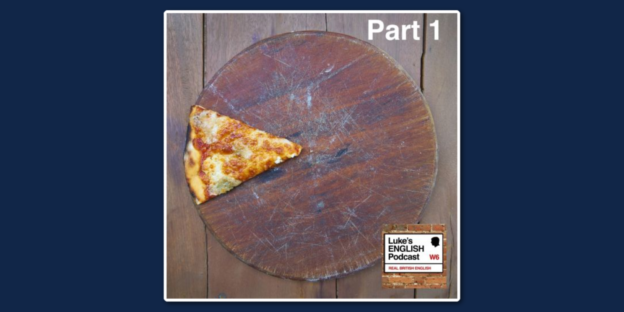

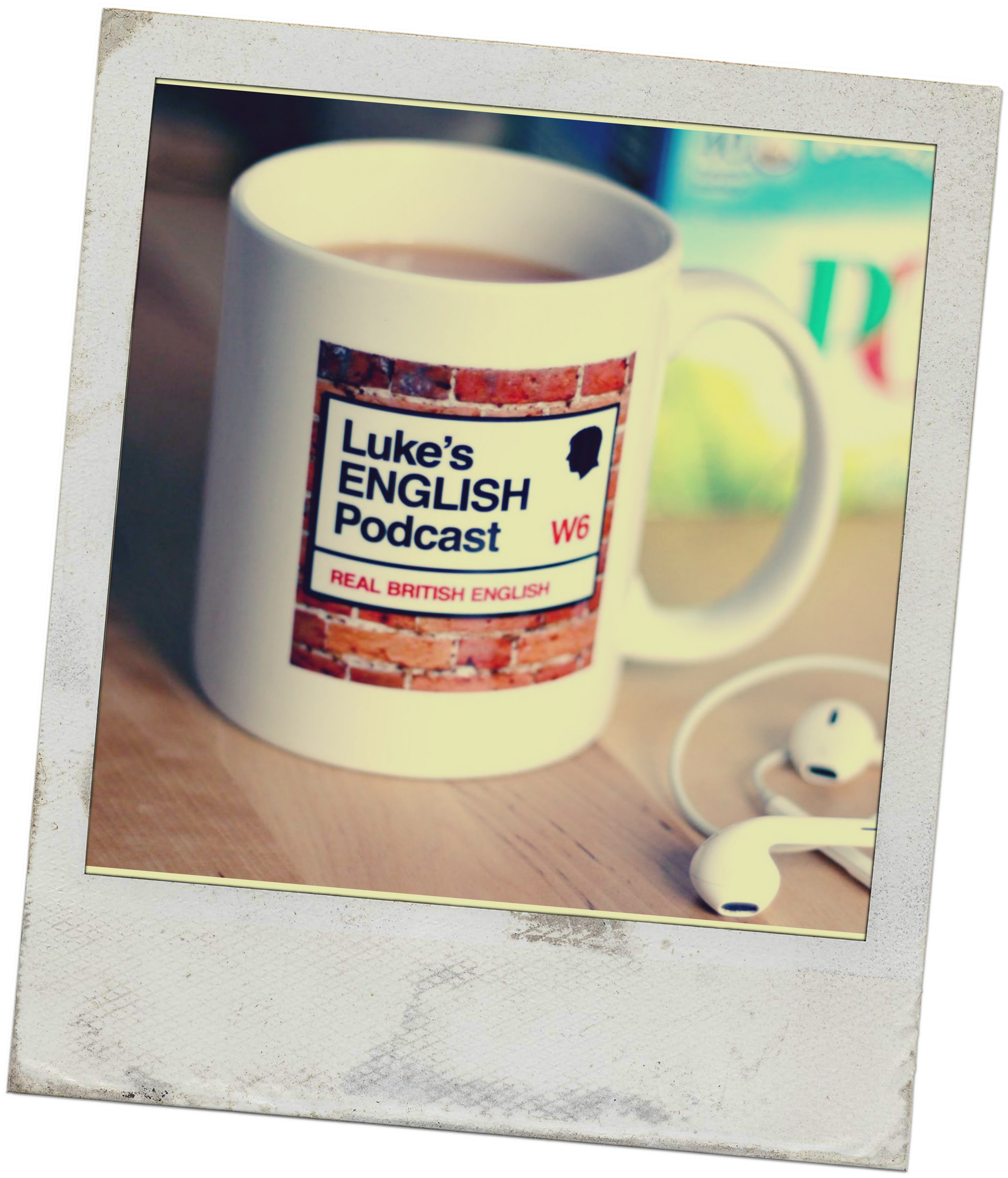


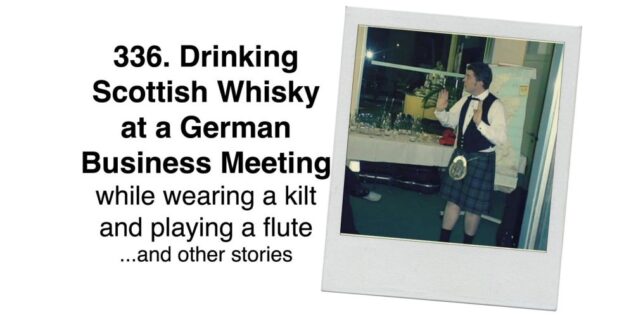
 italki
italki